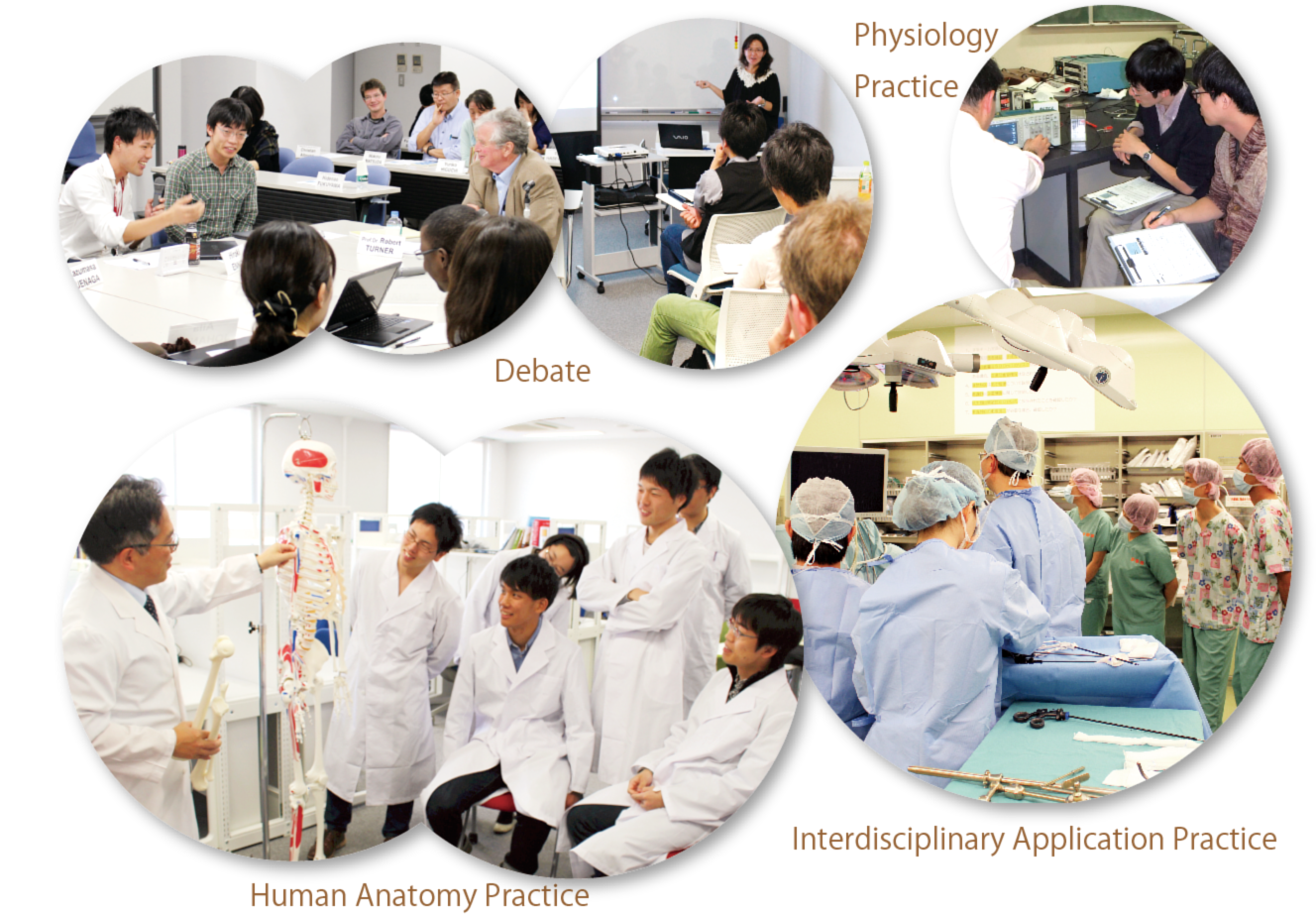The students will learn how to conduct research based on social needs, by acquiring the highly academic knowledge and technique on medico-engineering cultivated at Kyoto University, and by finishing the highly academic conventional researcher training program at their Master’s and Doctoral course.
| ・ | Will learn principles of operating devices and sensors used at the clinical site, and basics of materials chemistry of biomedical polymers and artificial organs through engineering courses such as Fundamental Mechanics and Dynamics, and Basic Materials Chemistry. Also, knowledge on medical technology will be obtained by field trips to actual sites of material and medical device development. |
| ・ | Will learn in mathematical science courses how to analyze medical data by statistics, and how to analyze information from programing simulation. |
| ・ | Will understand the needs on site such as medical‧care support by special training at hospitals‧elderly facilities, pubic institutions, and international organizations. |
| ・ | Will learn social care rules such as Health Economics, Medical Ethics, Intellectual Property and Global Standardization. |
| ・ | Through mastering practical issues and internship at industries‧domestic and international research institutions, the students will learn sophistication as a leader and play an active part in Industry/Government Society as soon as they finish this program. |


